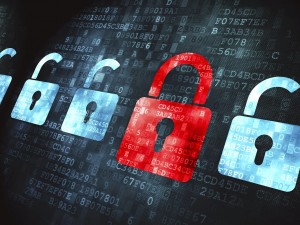Federal Computer Hacking Lawyer Los Angeles
No area of federal law has seen a greater increase in prosecutions than cases involving charges of unlawful computer hacking. The United States Attorneys’ office has filed numerous charges in connection with a wide variety of financial crimes.
When Is Computer Hacking A Federal Crime?
The Computer Fraud and Abuse Act (18 U.S.C. Section 1030) is the basic federal law that defines when computer hacking is a federal crime. The law applies to seven general categories of unlawful computer hacking:
- Trespassing on a government computer
- Hacking that results in the exposure of certain financial, governmental, credit, or commercial information
- Damaging a computer through the use a computer virus or similar method
- Committing fraud that involves the unauthorized access of a government, bank, or other computer
- Threatening to damage a governmental or bank computer, or any computer that is affected by interstate commerce
- Trafficking in passwords and related conduct
- Accessing a computer as part of an effort to conduct espionage
 It is also a crime to conspire to commit any of these crimes, the punishments for which vary widely. A single, first-time offense for hacking into a government computer, without causing any damage to the computer, is subject to a maximum prison sentence of one year. A repeat offender for the same crime can be sentenced with up to a ten-year sentence. Computer hacking that is part of an effort to commit fraud is subject to a five-year prison sentence (for a first offender). Computer hacking that is related to espionage is subject to even longer prison sentences.
It is also a crime to conspire to commit any of these crimes, the punishments for which vary widely. A single, first-time offense for hacking into a government computer, without causing any damage to the computer, is subject to a maximum prison sentence of one year. A repeat offender for the same crime can be sentenced with up to a ten-year sentence. Computer hacking that is part of an effort to commit fraud is subject to a five-year prison sentence (for a first offender). Computer hacking that is related to espionage is subject to even longer prison sentences.
Other Federal Crimes Related To Computer Hacking
Federal charges for violating Section 1030 are almost always brought in connection with a wide array of other crimes including: wire fraud interstate transportation of stolen property (18 U.S.C. Section 2314); economic espionage and theft of trade secrets(18 U.S.C. Section 1832); fraud involving credit cards and access devices (18 U.S.C. Section 1029), bank fraud, and theft of federal property (18 U.S.C. Section 641); and threats transmitted in interstate commerce (18 U.S.C. Section 875), and mortgage fraud.
Charges related to harming a computer by launching a computer virus are also generally brought in conjunction with other charges including: Destruction of federal property (18 U.S.C. Section 844); destruction of government records (18 U.S.C. Section 2071), and related offenses.
Because of the wide range of crimes involved, people who are charged with violating federal computer hacking laws routinely face lengthy prison sentences and large fines.
Defending Federal Computer Hacking Charges
The basic elements of computer hacking is fairly straightforward. For example, to prove that an unlawful property of a federal computer, prosecutors must prove each of the following elements beyond a reasonable doubt:
- A person without authorization; and
- Intentionally
- Accessed a computer exclusively maintained for the federal government use; or
- Accessed a computer in such a way that it affects the use of that computer by or for the federal government.
Defending such a case involves challenging each of these elements. The biggest issues are often whether the use of the computer was authorized and most importantly, whether the hacking was intentional.
 In many cases, intent can only be established through circumstantial evidence. That is why successfully defending a computer hacking case involves collecting and organizing information from a variety of sources, such as emails, correspondence, and witness interviews.
In many cases, intent can only be established through circumstantial evidence. That is why successfully defending a computer hacking case involves collecting and organizing information from a variety of sources, such as emails, correspondence, and witness interviews.
Computer hacking cases also regularly raise chain of custody issues. Specifically, the government’s evidence may suggest that a particular device may be connected to a particular unauthorized use of another computer. But that is not the same as proving that the person charged with computer hacking was the person who had control over the computer at the relevant time. This is just one example of why defending computer hacking cases requires both knowledge of how computer systems work, the ability to work with computer experts who can evaluate the evidence that federal prosecutors rely on, and experience in defending criminal cases in federal court.
WHY AN EXPERIENCED FEDERAL COMPUTER HACKING DEFENSE LAWYER CAN HELP
Given that computer hacking and related federal crimes are subject to such extreme punishments, it is critical that you work with an experienced federal defense lawyer. Because computer hacking charges may involve the confiscation of computer hardware and software, even people who are just witnesses can be subject to substantial inconvenience. Whether your situation involves the FBI or any other federal agency, or whether you may only be a “witness” in a computer hacking fraud case, or whether you have been accused of being more actively involved in a federal computer conspiracy, the Law Offices of Jerod Gunsberg will aggressively defend any computer hacking-related charge based on our extensive experience in the federal courts in Los Angeles, Orange, Riverside, and San Bernardino Counties.

